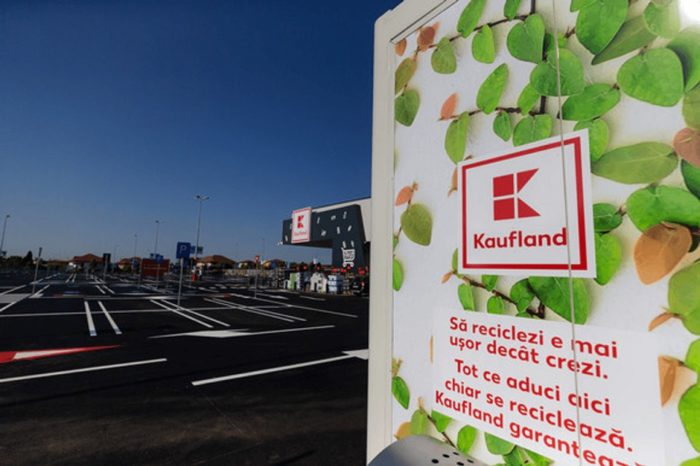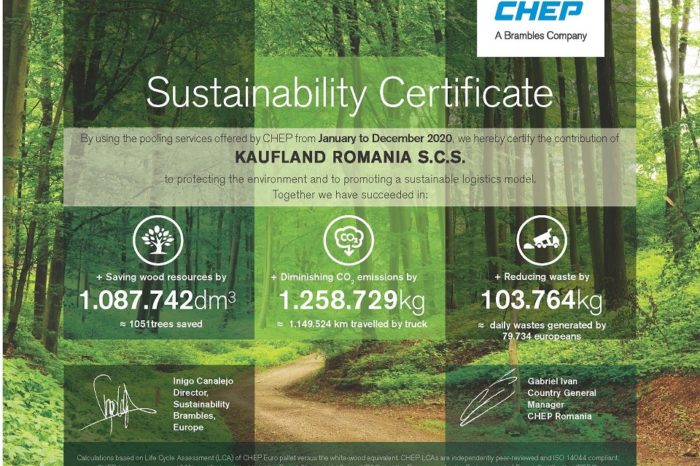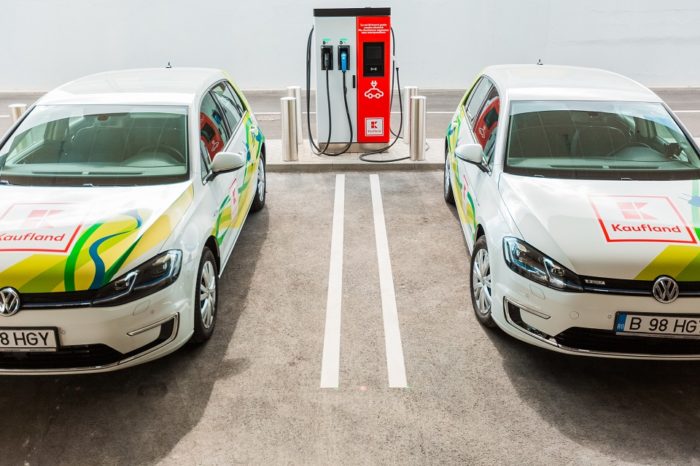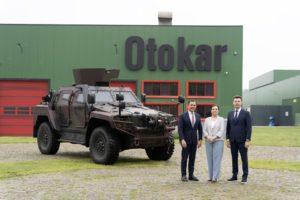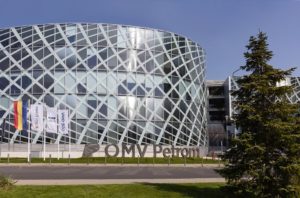Kaufland reduced its carbon footprint by more than 3,500 tonnes by reusing EPS folding crates
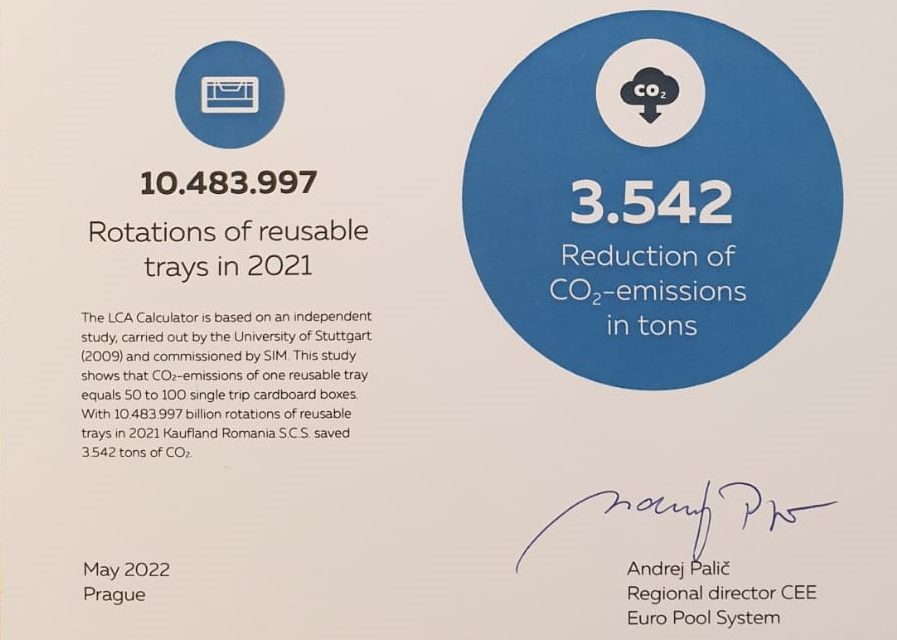
By using sustainable EPS reusable folding crates, Kaufland Romania has reduced its carbon footprint by over 3,500 tons in 2021.
Thus, the registered results provided the company, for the second consecutive year, the sustainability certificate from Euro Pool System, the main supplier of logistics in the field of reusable packaging for fresh products in Europe.
This result follows Kaufland’s decision to introduce the use of EPS folding crates for transporting vegetables and fruits instead of disposable cardboard packaging. As a major retailer in the local market, Kaufland is committed to integrating sustainability into all its actions. In addition to reducing its own carbon footprint, the company invests in means that also help its customers and partners limit their impact on the environment. For this certificate, more than 10 million rotations of EPS crates were taken into account during 2021.
The calculation tool was developed by the Stiftung Initiative Mehrweg (SIM) in Germany, previously approved by the Fraunhofer IBP in Stuttgart. The foundation was established in 1996 in order to raise awareness of waste reduction in the retail industry. Kaufland is constantly involved in environmental protection actions and is committed to supporting and contributing to the achievement of the 17 Sustainable Development Goals (SDGs) launched by the United Nations (UN), including terrestrial life, Climate Action and Responsible Consumption and Production.



